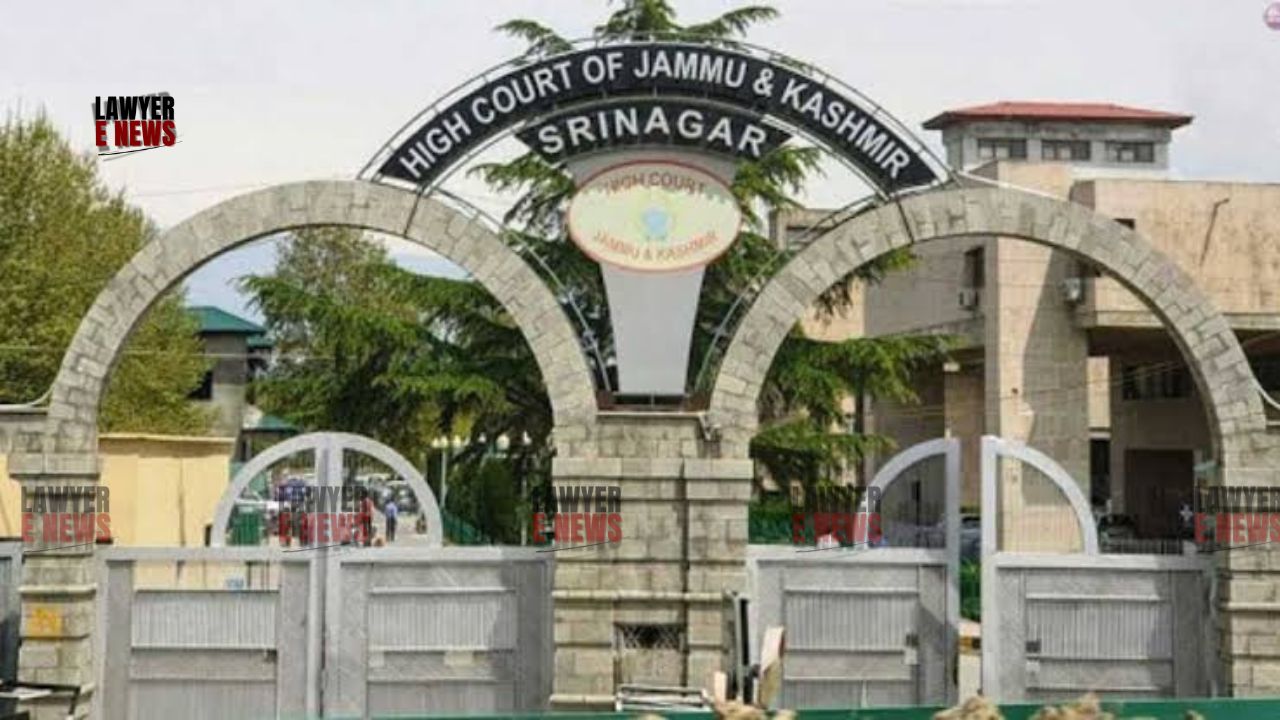-
by sayum
14 February 2026 2:22 PM



High Court of Jammu and Kashmir and Ladakh, Srinagar Bench, ruled in Ghulam Mohammad Waza v. Union Territory of J&K & Ors. (LPA No. 242/2024) that a fresh preventive detention order issued against Ghulam Mohammad Waza was invalid due to reliance on previously quashed grounds. The court ordered Waza’s release, underscoring that a detention order cannot be based on prior grounds unless supported by significant new material, in line with Supreme Court precedents.
The petitioner, Ghulam Mohammad Waza, was initially detained under the Public Safety Act by an order from the District Magistrate of Bandipora in 2022, citing several FIRs from 2016 and 2020. This detention was later quashed by the High Court in March 2023. However, the authorities issued a fresh detention order on February 23, 2024, once again referencing the same FIRs, along with a new FIR (No. 67/2022) involving alleged recovery of arms from an associate. Waza’s appeal contested this second detention, claiming it repeated grounds from the quashed 2022 order without adequate new material.
Stale Grounds for Detention: Counsel for Waza argued that the 2024 detention order improperly reused grounds from the previous, quashed detention, violating legal principles which bar re-detention based on dismissed grounds.
Absence of Fresh Grounds: Waza's counsel emphasized that he had already been discharged from the newly added FIR (No. 67/2022) by a special NIA court in August 2023, arguing this discharge removed any fresh basis for his detention.
Constitutional Violations: The defense pointed out that Article 22(5) of the Constitution, which protects against unlawful detention, was violated due to a lack of substantive new evidence.
In a judgment delivered by Justice M. A. Chowdhary, the court agreed with Waza’s arguments:
Legal Prohibition on Reuse of Quashed Grounds: Citing Supreme Court rulings, the court highlighted that "grounds of the said order should not be taken into consideration... once the Court strikes down an earlier order," as reaffirmed in Chhagan Bhagwan Kahar v. N.L. Kalna and other rulings.
Lack of "Live Link" with Alleged Activities: The court observed that the detaining authority’s reliance on past FIRs lacked a "live link" to current risks, noting that merely invoking older cases did not satisfy the urgency required for preventive detention.
Invalid Basis of FIR No. 67/2022: The court pointed out that Waza's discharge from the new FIR indicated insufficient grounds for preventive detention, making the fresh detention order both "legally untenable" and lacking justification.
The High Court’s ruling set aside the impugned detention order and the earlier judgment affirming it, ordering Waza’s immediate release. The court underscored that authorities must avoid "abuse of process" by reusing dismissed grounds without substantive, fresh evidence.
This decision reinforces that preventive detention must adhere to strict safeguards, including valid, contemporaneous grounds. By preventing the reuse of dismissed grounds, the court’s ruling protects individual rights under Article 21, emphasizing that procedural justice is paramount even in cases concerning public order.
Decision Date: November 7, 2024
